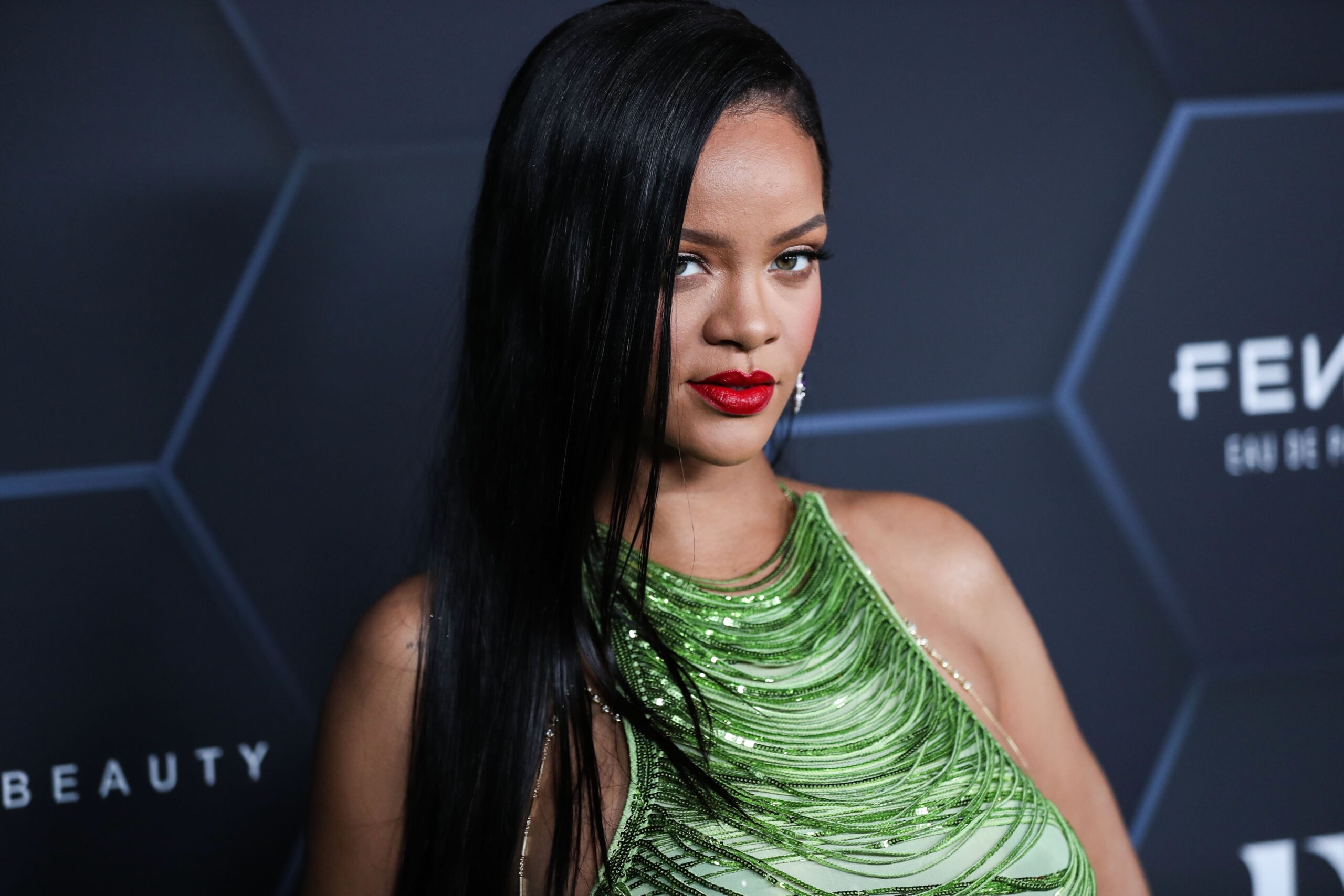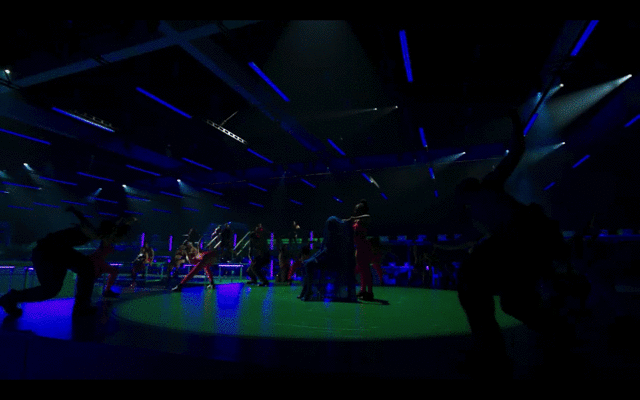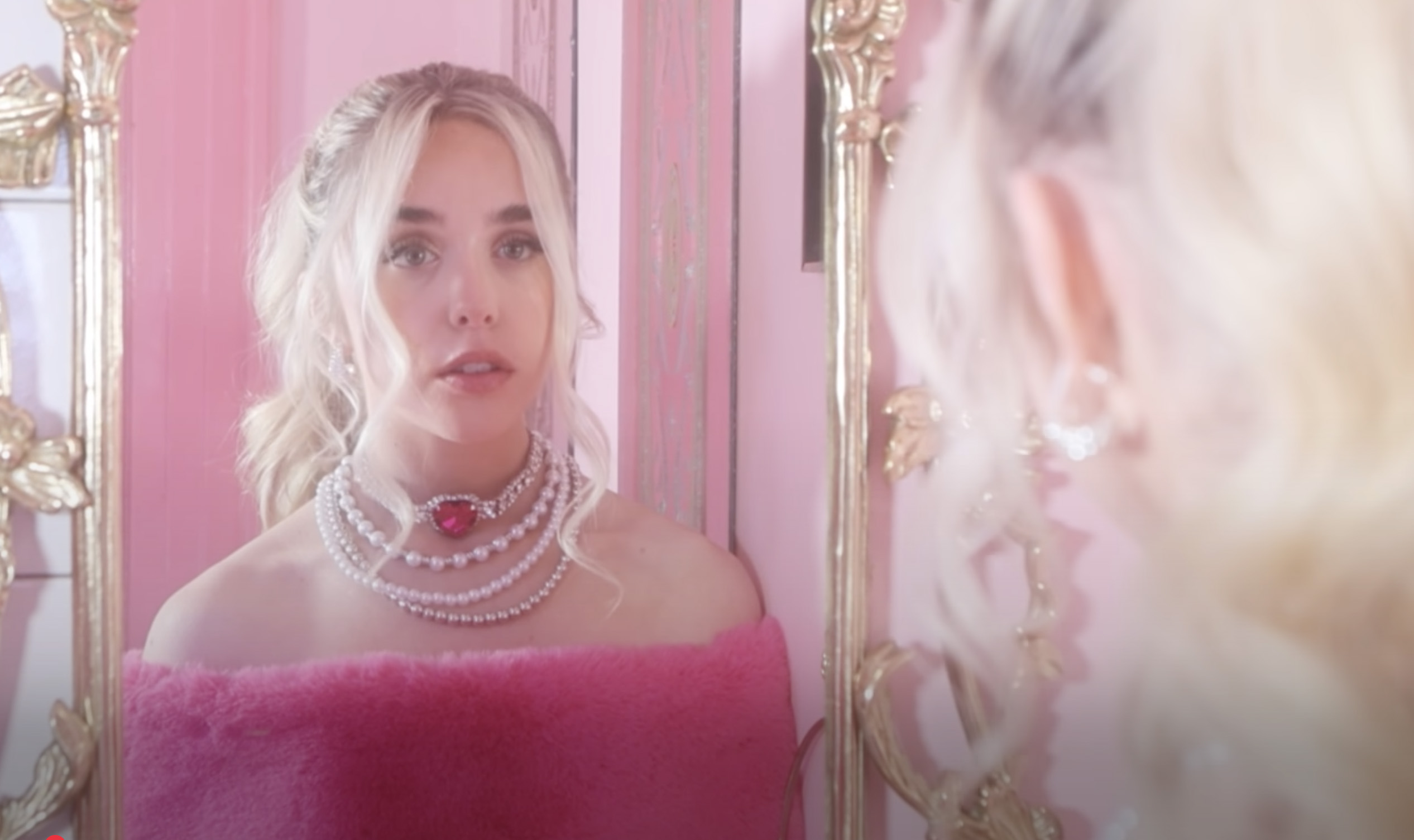
Rihanna
Photo by Image Press Agency-NurPhoto-Shutterstock
In Islamic culture, anything to do with the prophet Muhammad P.B.U.H. is held sacred.
His image, his habits, and his words must all be regarded with great reverence. And reverence is not what Rihanna’s Fenty lingerie show was about–not even a little bit.
But while I understand why many people are upset and offended by the show’s sloppy disregard for cultural beliefs, I have to take a step back and look at the whole picture. To me, this is less an example of a corporate entity exploiting an under-represented culture and more like a disastrous case of telephone.
Let’s start with the song in question. “Doom” is a 2016 dance/electronic song by British music producer Coucou Chloe. The entire song’s hook, chorus, and verses are built around a cropped and sped-up sample of a Hadith (narrated by Mishary bin Rashid Alafasy). For my non-Muslim readers, a Hadith refers to reports of statements or actions of prophet Muhammad P.B.U.H., or of his implied approval or criticism of something said or done in his presence. If this sounds vague and open-ended, that’s because it is.
If you really dig into it, there are actually different levels of authenticity to Hadiths; some are regarded with mild skepticism and some are as sacred as the Quran itself. The specific Hadith that’s sampled in “Doom” references a conversation between Mohammad P.B.U.H. and his followers, wherein he describes a period of time before the Day of Judgment called Haradge, or, “The Killing.” He goes on to describe this Haradge as a period of chaos (or “doom”) when you aren’t killing your enemies, but killing yourselves: friend killing friend, neighbor killing neighbor, brother killing brother. Frankly, I’m surprised Blumhouse Productions hasn’t optioned the rights to this Islamic nightmare yet.
After listening to the song by itself, I found myself pretty underwhelmed. As a Muslim-American I have to recognize that my sensitivity to Islamic traditions may differ from other Muslims around the world, but I didn’t find the song necessarily blasphemous. An ignorant exercise in cultural appropriation? Sure. But not wholly sacrilege. The beat is hypnotic, and the bass synths are massive and beefy. The biggest blunder is that at no point did Coucou Chloe think to run this song by a single Muslim person–or Arab-speaking person, for that matter–who would immediately be able to tell that these vocals were Islamic in nature and likely advise her to find a different sample.
Or did she? She herself acknowledged (in the description of the now-deleted YouTube video for the song) that the sample is taken from a recording of someone speaking in a different language: “For those who were wondering what were the vocal samples–I didn’t make the vocals on this one as you can easily guess.”
She even linked to the original clip of the Hadith. Given the specificity of what the Hadith is illustrating– murder, carnage, and chaos– and the fact that Coucou Chloe titled the track “Doom” leads me to believe that she had some idea of what the verse was saying, or at the very least understood it to be Islamic. In her apology tweet, she has this to say:
Many Twitter users responded to the tweet with the fact that she titled the song “Doom” while claiming not to know what the Arabic words were saying. I find it hard to believe that someone could invest so much time and effort to compose this intricate, appropriated piece of work and didn’t think to do even a modicum of research.
But people aren’t upset that a random non-Muslim music producer made a song that sampled an Islamic Hadith. This song could have lived in the ether of Bandcamp for all eternity, to remain an ignorant notch on this artist’s bedpost of a career. But then it was featured in a lingerie show. And not just any lingerie show– Fenty’s multi-million dollar fashion production, replete with cinematic lights, dynamic choreography, multi-camera setups, and an army of internationally acclaimed models from around the globe–featured on the mainstage of the second-biggest streaming platform in the world.
As someone who grew up hearing those words in the context of chastity and worship, it was unsettling. A model in a black leotard walks toward the camera, an echo of snare hits ringing out amongst a slur of vocalization. And then the holy words come. Not obvious at first. Just a phrase. Something eerily familiar to any well-to-do Muslim… Are we hearing that right? Is that what I think it is? It isn’t until a red-headed model in a thin blue two-piece takes center frame that the full phrase of the Hadith becomes clear. It only gets worse as the camera follows the scantily clad model to a rotating centerpiece, where a final girl is literally unveiled, hair down, legs spread, tongue extended in a seductive smirk.

It felt like something out of 2018’s Suspiria: hedonism and piety woven into a cacophony of profligacy.
What’s worse is the fact that this isn’t the first time Rihanna has bumped up against Islamic appropriation in her Fenty line. In October 2018, Bella Hadid walked for Fenty lingerie wearing a headdress resembling an Islamic hijab.
When you look at the photo, it could be seen as walking the fine line between appropriation and fashion; her hair isn’t fully covered and her face is visible. But a lot of Muslim women choose to wear their Hijab in this style and associate it with an Islamic expression. Wearing that headdress with a lace bra and panties isn’t exactly respectful of the culture.
Plus, I can’t help but laugh to myself at the fact that Rihanna has dated two prominent Muslims and still didn’t think to run this song by an actual Muslim person! How does that happen? I don’t believe Rihanna knowingly blasphemed an entire religion in order to make a statement with her lingerie. Maliya Naz references one twitter user in her article from Muslim Girl, as saying “Maybe the song just sounded good to them;” one minor aspect of a multi-part extravaganza. It just ended up being a horrible miscalculation.
While Twitter is ablaze with people condemning both Rihanna and Coucou, I don’t think it’s fair to cancel them. Professor Khaled Beydoun points out in a tweet:
I think is totally possible for both Rihanna and Coucou to “grow and move ahead” if they truly own up to their mistakes. It’s not like they’re doubling down on their ignorant, offensive transgressions and dying on a hill they have no right to be on, like some celebrities.
For myself, and from what I can tell by the thousands of outraged tweets being lobbed at Rihanna and Coucou, Muslims are feeling as though our culture is only valuable as long as it’s commodifiable. Rihanna has taken steps in the past to include Muslim visibility by hiring Halima Aden and Mariah Idrissi for her Fenty fashion campaigns in 2017 and 2018, respectively. That’s all well and good, but if she can’t take the time to discern between an Arabic-language song and a song that samples religious scripture, then her inclusive strides feel a bit hollow.
In her apology, she promises that “nothing like this will never happen again.” But how exactly can she promise that if she didn’t know what she was doing was wrong in the first place? I think the best way for her to address this transgression is to reach out to the Muslim community in an effort to understand why we were so offended. It’s not enough to just say you won’t do it again, Rihanna. How are you going to not do it again? And I’m not talking about making a donation to a Muslim charity or putting out a new line of underwear for Muslims. This has to be work, as in working towards understanding the culture she wants to advocate for.
We shouldn’t discount the work Rihanna’s done for Muslim inclusivity, but she very clearly has a long way to go before we can consider her a true ally. As for Coucou… She should donate all the money she made off that song to a Muslim charity. Islam isn’t an aesthetic, and it isn’t here to be monetized.














